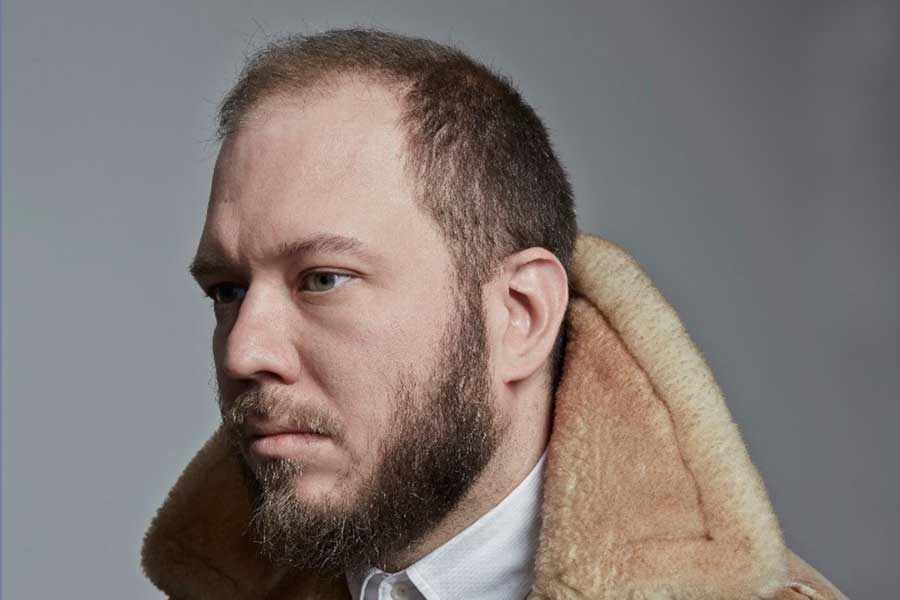This week’s Opera Philadelphia world premiere of “Breaking the Waves” may be a homecoming for its score’s composer, ruminative avant-garde musician and Lansdale native Missy Mazzoli. But her new opera — a Bartok-to-Bjork-inspired adaptation of Lars von Trier’s dark 1996 film “Breaking the Waves” — and its bleak, thematic libretto comes from an outsider to the area (but certainly not to the operatic form), Royce Vavrek.
A much-loved practitioner in the field of opera — to say nothing of his bold work in presenting new musical works, writing plays and making independent films in his home base of Brooklyn — the openly gay Vavrek has worked with score saints David T. Little (famed for “Dog Days” and “JFK”), Ricky Ian Gordon and Du Yun. We gabbed over a recent weekend as Vavrek prepared to ride the waves.
PGN: How does the Philly company process and your own personal processes differ from other companies you have worked with?
RV: A: We really had a first-class developmental process for “Breaking the Waves.” Each of the three acts had their own dedicated workshops (the end of the final workshop thwarted by January’s blizzard). I think that the more opportunities we have to develop operas, the more we understand the processes that we find beneficial. In my experience, the opera companies who commission the work really want to give us everything we require to create the best work we can possibly make.
PGN: How did the process differ between you and Missy, between your first opera together and this one? And how did you two even get together considering that you are so linked with David T. Little?
RV: “Song from the Uproar” was built in collaboration with our director, Gia Forakis, through a very unique process of identifying themes and elements of Isabelle Eberhardt’s life that we wanted to dramatize and musicalize. “Breaking the Waves” in many ways was a more traditionally built opera in that I wrote a treatment of the work, then a draft of the libretto and then Missy went off to compose and the libretto was further finessed through the compositional process and through the workshops. Funny enough, I actually met Missy at the Carnegie Hall Young Composers Concert where David and I premiered the first 20-odd minutes of what would become “Dog Days.” Missy gave me a flyer for the Galapagos presentation of “Song from the Uproar,” which I attended — a short prototype for the opera that preceded my involvement. The New York classical-music scene is a very small scene.
PGN: Real small. So what drew you to the story of Swiss explorer Isabelle Eberhardt, and what drew you to the film “Breaking the Waves” for your subject matter?
RV: It was really Missy’s enthusiasm that drew me to the world of Isabelle Eberhardt. Missy had already written a number of songs, and so I was able to see the world through the marriage of Missy and Isabelle’s voices. Then I folded my lyrical language into the fabric and it became the three of us in dialogue. As for “Breaking the Waves,” it’s a movie that I’ve loved since I was 14, and even though I didn’t know back then that I was destined to turn it into an opera, it is a narrative that I’ve carried with me for all of these years. For me, Lars von Trier is one of, if not the, best storytellers alive right now, and so much of my work is informed by his audacity. Even as a teenager, I was writing remarkably provocative plays — one about a nun that beats a little person to death in New York City; another about a pig who flees her northern Albertan farm and hitchhikes to New York City with dreams of becoming a famous actress but ends up becoming a prostitute that appeals to porcine fetishes of her johns; and another about a woman who marries a pumpkin only to destroy it when it doesn’t sexually satisfy her. I always wanted to tell stories that were as controversial as what von Trier was putting out in the world because they felt like important artistic statements.
PGN: That nun story is rough. How do you find opera in those tales?
RV: It is my job to find the poetry, or the prose-poetry, in the stories, which gives Missy the foundation to build her music on. In “Song from the Uproar,” I was particularly taken by the dark language that stemmed out of her depression, her journals having a heightened quality that lent themselves to a lyrical treatment. With “Breaking the Waves,” the way that von Trier uses melodrama suggested emotions and colors that I could use to translate the film onto an operatic canvas. I think it’s really exciting when you look at the many different types of stories that composers and librettists are choosing to tell through contemporary opera. I don’t know if there is a quality to a story that makes it more appropriate for operatic treatment, but I do know that the currency of opera is emotions; the music is such a huge agent in the storytelling, and for me, the best moments in any opera are the ones when characters spill their guts out. I love writing arias that really feel like they are a vertical exploration of a character’s psychology.
“Breaking the Waves” will be performed 2:30 p.m. Sept. 24, 7:30 p.m. Sept. 27 and Sept. 29 and 8 p.m. Oct. 1 at Perelman Theater, 300 S. Broad St.
“Breaking the Waves” will be performed 2:30 p.m. Sept. 24, 7:30 p.m. Sept. 27 and Sept. 29 and 8 p.m. Oct. 1 at Perelman Theater, 300 S. Broad St.
